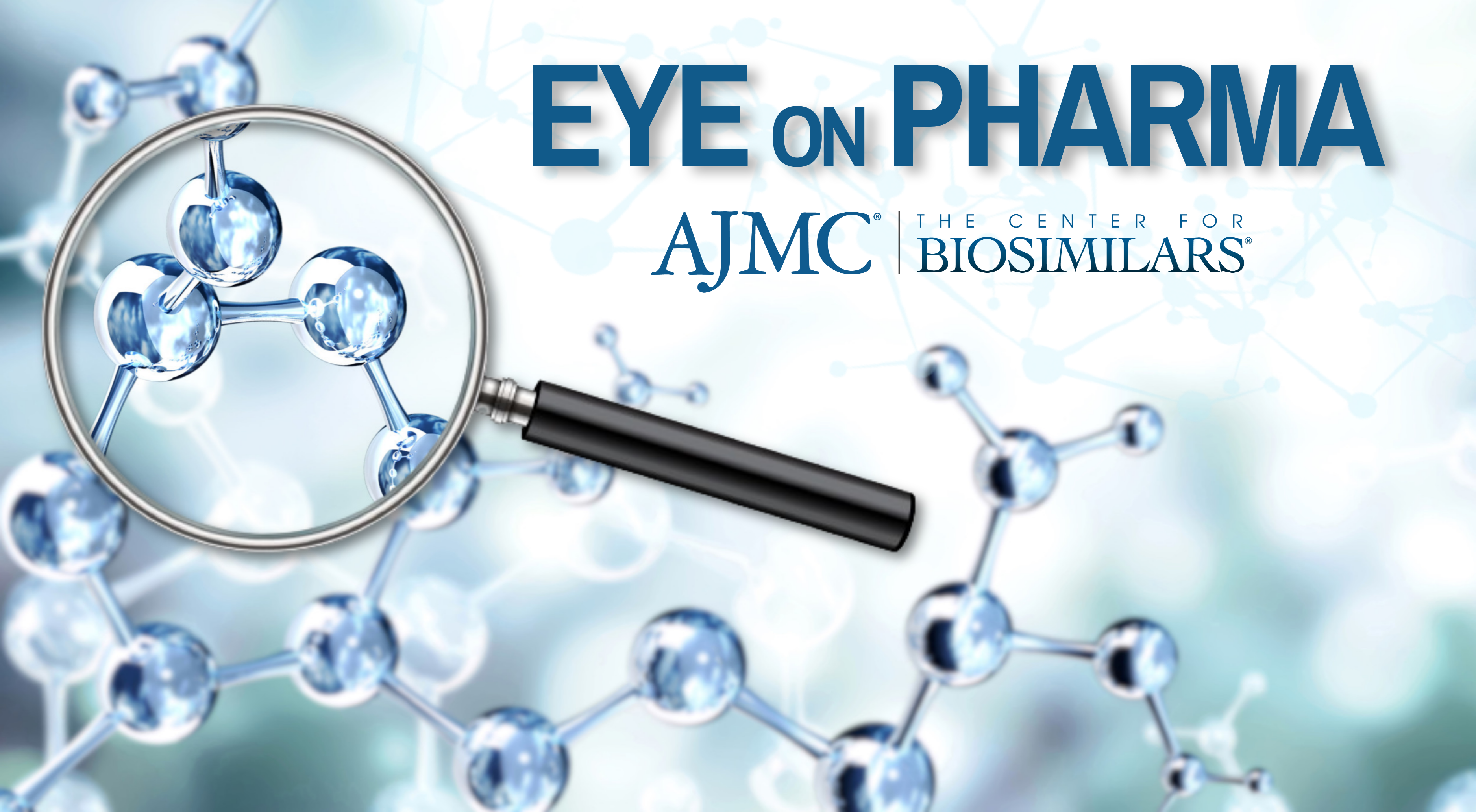- Bone Health
- Immunology
- Hematology
- Respiratory
- Dermatology
- Diabetes
- Gastroenterology
- Neurology
- Oncology
- Ophthalmology
- Rare Disease
- Rheumatology
Eye on Pharma: Keytruda Biosimilar Deal; German Court Bans Imraldi; New Biosimilars for Japan
Alvotech and Dr. Reddy's partner to develop a Keytruda biosimilar, a German court bans Humira biosimilar over patent dispute, and Samsung Bioepis enters a strategic agreement with NIPRO Corporation in Japan.

Alvotech and Dr. Reddy's to Partner on Pembrolizumab
Alvotech and Dr. Reddy’s Laboratories have announced a strategic partnership to co-develop, manufacture, and commercialize a biosimilar candidate referencing Keytruda (pembrolizumab), one of the world’s top-selling cancer immunotherapies.1 Keytruda, which is expected to lose market exclusivity in 2028, generated $29.5 billion in global sales in 2024 and is used to treat multiple cancer types, including melanoma, non-small cell lung cancer, and classical Hodgkin lymphoma. Making a biosimilar version creates a significant opportunity to improve patient access to life-saving treatments.
Under the agreement, both companies will jointly manage development and manufacturing responsibilities and share associated costs. Subject to certain exceptions, each partner will retain rights to commercialize the biosimilar globally.
The collaboration leverages Alvotech’s biosimilar research and development and manufacturing expertise alongside Dr. Reddy’s global commercialization strength and oncology focus. Executives from both companies emphasized their shared goal of delivering high-quality, affordable cancer therapies and expanding patient access to critical biologics across international markets.
German Court Bans Humira Biosimilar Over Patent Dispute
Samsung Bioepis and its European commercialization partner Biogen have been dealt a major legal blow in Germany, according to Korea Biomedical Review.2 The Düsseldorf Higher Regional Court ruled that their adalimumab biosimilar, Imraldi, infringes on a formulation patent held by Fresenius Kabi, which covers liquid versions of adalimumab—the active ingredient in AbbVie’s blockbuster anti-inflammatory drug. The decision reversed a 2022 lower court ruling that had favored Samsung Bioepis and Biogen.
The ruling has immediate consequences: it bans the sale of Imraldi in Germany, orders Biogen to recall and destroy existing inventory, and imposes financial penalties along with a disclosure of sales data. This raises the stakes for Samsung Bioepis, as Europe is a key market for biosimilars, and Imraldi had captured 62% of Germany’s adalimumab biosimilar market just 1 month after its 2018 launch.
The legal victory for Fresenius Kabi, which markets its own adalimumab biosimilar, Idacio, reflects intensifying competition in Europe’s adalimumab space. Although Samsung Bioepis and Biogen previously challenged the validity of the formulation patent at the European Patent Office, that effort failed, and the patent remains in force across the European Union—potentially opening the door to similar enforcement in other countries. The companies are already defending against related claims in France.
The court did not automatically grant Biogen leave to appeal to Germany’s Federal Court of Justice, though an appeal may still be requested. In the meantime, the injunction and penalties stand, putting pressure on the companies to either reformulate or reach a settlement if they want to avoid broader sales disruptions in Europe.
New Deal for Biosimilars in Japan
Samsung Bioepis has entered into a strategic agreement with NIPRO Corporation to license, develop, and commercialize multiple biosimilar candidates in the Japanese market.3 Under the terms of the deal, Samsung Bioepis will be responsible for development, manufacturing, and supply, while NIPRO will lead commercialization efforts within Japan.
Among the biosimilars included in the agreement is SB17, Samsung Bioepis’ biosimilar candidate referencing ustekinumab—a monoclonal antibody used to treat autoimmune conditions such as plaque psoriasis, psoriatic arthritis, and Crohn disease. The introduction of an ustekinumab biosimilar in Japan could provide a more affordable alternative to the originator product (Stelara), helping to lower treatment costs and expand access for patients managing chronic immune-mediated diseases.
In its statement on the new partnership, Samsung Bioepis noted that the partnership reflects growing momentum in Japan’s biosimilar market, where the government is encouraging adoption to reduce healthcare spending amid a rapidly aging population.
References
1. Alvotech and Dr. Reddy’s enter into collaboration to co-develop biosimilar candidate to Keytruda (pembrolizumab). Press release; Alvotech. June 5, 2025. Accessed June 17, 2025. https://investors.alvotech.com/news-releases/news-release-details/alvotech-and-dr-reddys-enter-collaboration-co-develop-biosimilar
2. Samsung Bioepis, Biogen lose Humira biosimilar patent fight in Germany. Korea Biomedical Review. June 16, 2025. Accessed June 17, 2025. https://www.koreabiomed.com/news/articleView.html?idxno=27912
3. Samsung Bioepis enters into a strategic partnership with NIPRO for commercialization of multiple biosimilars in Japan. Press release; Samsung Bieopis; June 8, 2025. Accessed June 17, 2025. https://www.businesswire.com/news/home/20250608582351/en/Samsung-Bioepis-Enters-into-a-Strategic-Partnership-with-NIPRO-for-Commercialization-of-Multiple-Biosimilars-in-Japan
Newsletter
Where clinical, regulatory, and economic perspectives converge—sign up for Center for Biosimilars® emails to get expert insights on emerging treatment paradigms, biosimilar policy, and real-world outcomes that shape patient care.
